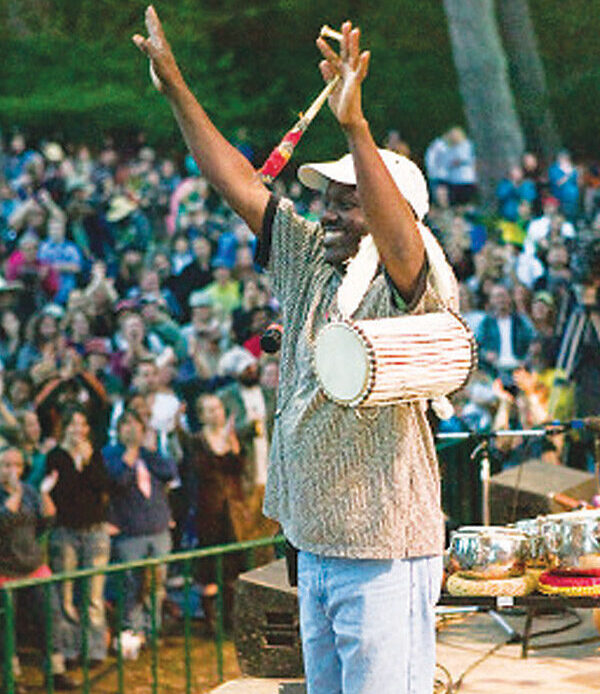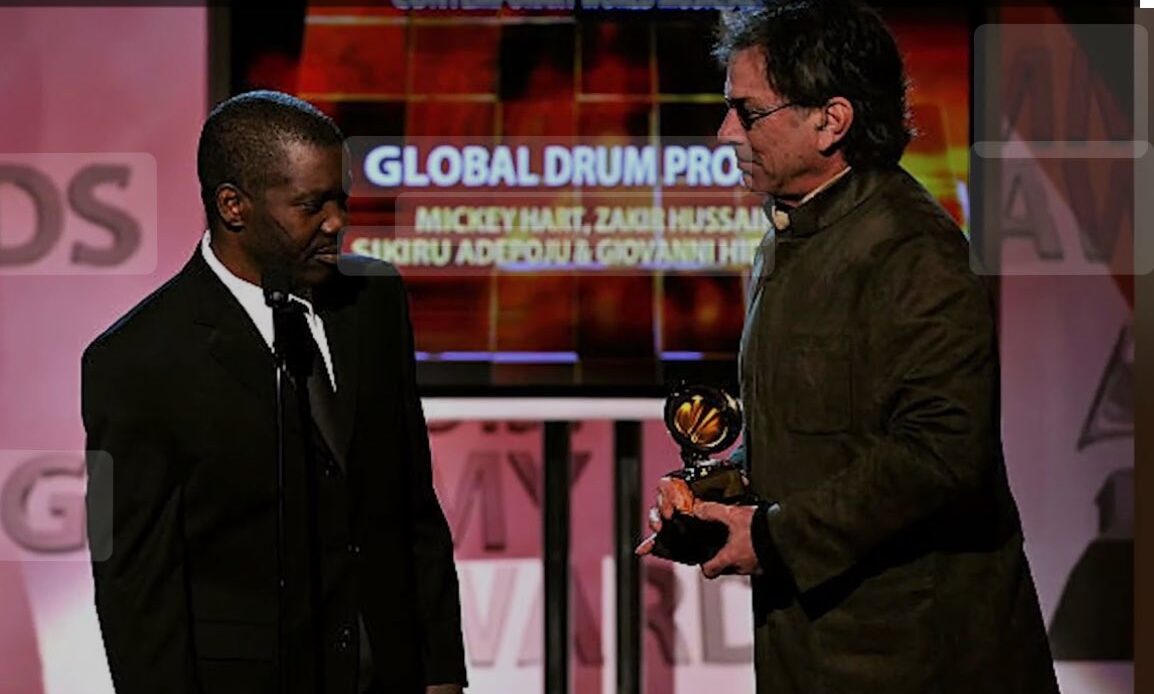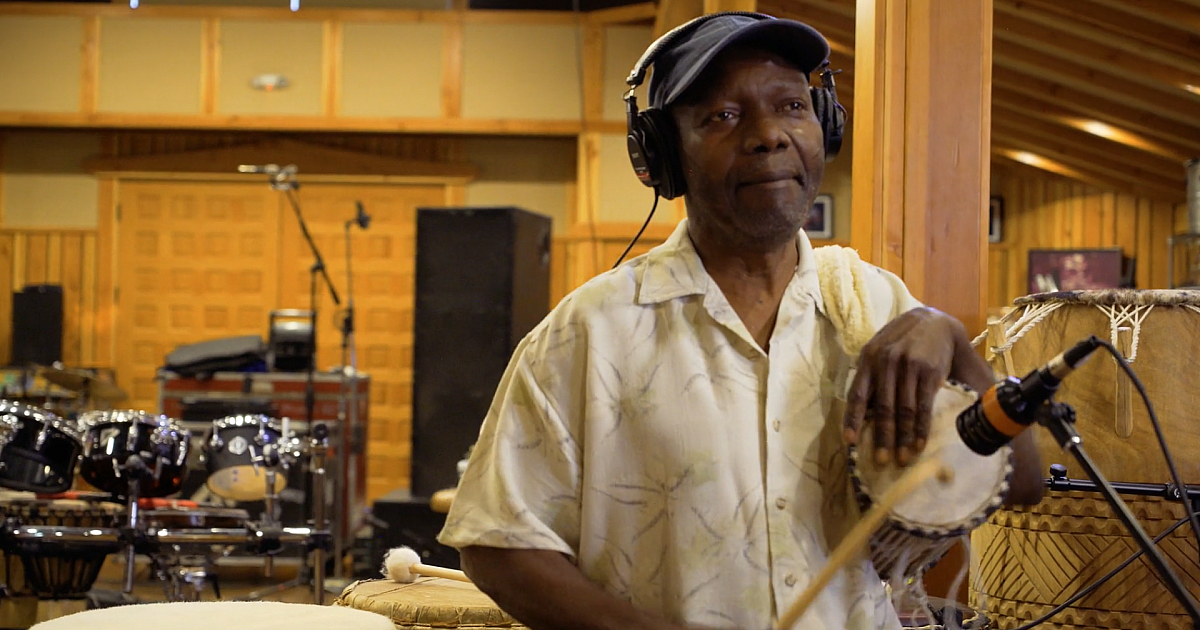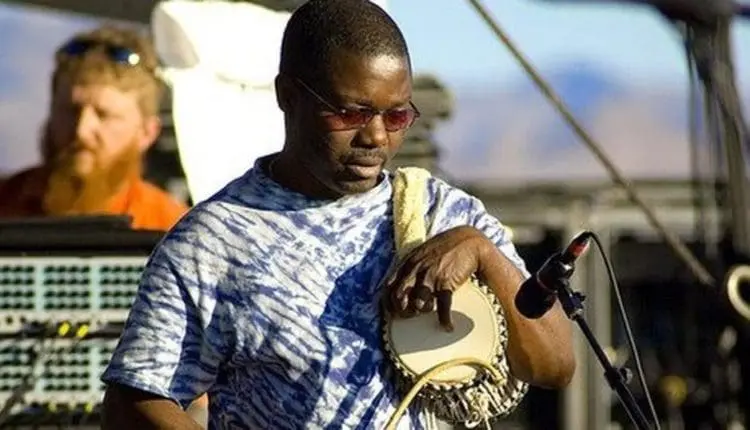
What happens when tradition meets innovation? When ancient rhythms transcend time and culture? Sikiru Adepoju, a master of the talking drum, embodies this fusion. Born into a lineage of Yoruba drummers in Eruwa, Nigeria, he was destined to carry forward the percussive storytelling of his ancestors. But what makes his story extraordinary is his heritage— his ability to push boundaries, collaborate across continents, and redefine global music.
From performing with Chief Commander Ebenezer Obey as a teenager to joining the legendary Grateful Dead drummer Mickey Hart in the U.S., Adepoju’s beats have echoed worldwide. His Grammy-winning contributions to Planet Drum and Global Drum Project prove that rhythm is a universal language—one that he speaks fluently.
But who is Sikiru Adepoju beyond the drum? His journey is not just about music but cultural preservation, reinvention, and a relentless pursuit of excellence. Let’s dive into the life of this percussive pioneer whose hands have shaped the very pulse of world music.
Read: Tems Wins Her First Solo Award at the 67th Grammy Awards.
The Roots of a Drumming Prodigy

Sikiru Adepoju was born on November 10, 1950, in Eruwa, Nigeria, into a family where rhythm was more than just sound—it was heritage. His father, Chief Ayanleke Adepoju, was a master drummer, and his very name, Ayan, signified descent from a lineage of drummers. This familial tradition meant that from an early age, Sikiru and his brothers, Saminu and Lasisi, were immersed in the language of percussion, learning to play the talking drum, an instrument that mimics human speech through tonal inflexions.
Growing up, Adepoju honed his craft in the vibrant Nigerian music scene, where drumming was a powerful form of storytelling, communication, and celebration. By his teenage years, he had already begun making waves, touring and recording with the legendary Chief Commander Ebenezer Obey and his Inter-Reformers Band. Obey, a pioneer of Juju music, fused traditional Yoruba rhythms with Western influences, providing Adepoju with a platform to refine his percussive versatility.
While many young drummers aspired to play within Nigeria’s thriving Afrobeat and Juju music scenes, Adepoju harboured a bigger dream—to take his craft beyond Africa’s borders. His prodigious skill caught the attention of O.J. Ekemode and the Nigerian All-Stars, a group that would serve as his ticket to international recognition. In 1985, he moved to the United States, a decision that would set the stage for his transformation into a global drumming icon.
A Global Drumming Icon – Achievements and Contributions
Sikiru Adepoju’s journey from a small town in Nigeria to the grandest stages of world music is a testament to his extraordinary skill and perseverance. After moving to the United States in 1985, he quickly found himself in the company of musical giants. His introduction to Babatunde Olatunji, the legendary Nigerian percussionist and leader of Drums of Passion, marked the beginning of a transformative chapter in his career. Through Olatunji, Adepoju connected with Grateful Dead drummer Mickey Hart, a pivotal relationship that would catapult him into global recognition.

With Hart, Adepoju became a central figure in the Planet Drum project, a groundbreaking collaboration that united percussionists from diverse cultures. This project wasn’t just a musical experiment but a revolution in world music. Their album Planet Drum won the first-ever Grammy Award for Best World Music Album in 1991, an achievement that positioned Adepoju as a key player in the fusion of African rhythms with Western musical sensibilities.
Beyond Planet Drum, Adepoju has collaborated with an impressive roster of global artists, including Stevie Wonder, Carlos Santana, Airto Moreira, Bola Abimbola, and Zakir Hussain. His ability to adapt the talking drum to different musical styles—from Afrobeat and jazz to rock and electronic music—has made him one of the most versatile percussionists of his generation.
In 2008, Adepoju made Grammy history again, winning his second Grammy for the album Global Drum Project alongside Mickey Hart, Zakir Hussain, and Giovanni Hidalgo. The album was celebrated for its intricate fusion of percussive styles from Africa, India, and Latin America, further solidifying his reputation as a master of rhythm.
Through his leadership in groups like The Honeymakers, Afrika Heartbeat, and Riddim Doctors, Adepoju pushes the boundaries of percussion, blending traditional Yoruba drumming with modern soundscapes. His contributions have preserved African musical heritage and expanded its influence across global audiences.
Challenges and Growth
Despite his extraordinary talent, Sikiru Adepoju’s rise to international stardom was not without hurdles. Leaving Nigeria and navigating the global music industry as an African percussionist came with its own set of challenges.
One of his initial struggles was adapting to Western musical structures while staying true to the rich Yoruba drumming traditions he had inherited. The talking drum, deeply rooted in Nigerian oral history, was not widely recognized outside of Africa. Adepoju had to bridge cultural gaps, introducing his audiences to African percussion’s depth and storytelling power.
Breaking into the U.S. music industry was another challenge. Unlike conventional musicians who rely on melody and harmony, Adepoju had to carve a niche for percussion in mainstream music. His partnership with Babatunde Olatunji and Mickey Hart was pivotal, but it took years of dedication to establish his own identity beyond collaborations.
There were also personal sacrifices—leaving behind family in Nigeria, constantly touring, and proving himself in an industry that often overlooks traditional musicians. However, Adepoju’s relentless spirit and adaptability allowed him to thrive. He reinvented percussion’s role in global music, proving that rhythm alone could tell stories, evoke emotions, and inspire movements.
His resilience paid off, culminating in multiple Grammy wins, widespread recognition, and a career that inspires percussionists worldwide.
Read: Nigerian Nominees at the 67th Grammy Awards and Their Winning Prospects
The Personality of The Nigerian Percussionist

Sikiru Adepoju is more than just a master percussionist; he is a storyteller, an innovator, and a cultural ambassador for African music. His personality is as dynamic as his drumming—joyful, passionate, and deeply rooted in tradition. Known for his warm presence on and off stage, Adepoju embodies the spirit of Yoruba music, blending discipline with spontaneity.
Beyond music, he is a mentor and educator, committed to passing down the rich heritage of talking drum performance to future generations. Whether through workshops, collaborations, or live performances, he ensures that traditional African rhythms remain relevant in a rapidly evolving musical landscape.
As for what’s next, Adepoju continues to expand his artistic reach. His latest project, “Riddim Doctors,” brings together a diverse lineup of world-class percussionists, including Giovanni Hidalgo, Zakir Hussain, and Femi Ojetunde. The group’s debut album, “OPE” (Gratitude), celebrates rhythm’s universal power, fusing traditional African drumming with jazz, electronic, and world music influences.
In addition to performing, Adepoju is deeply involved in preserving and evolving African musical traditions. He has expressed interest in creating more platforms for African percussionists in the global music scene, advocating for better representation of traditional drummers in mainstream media and education.
Whether on stage, in the studio, or through mentorship, Sikiru Adepoju remains a living testament to the enduring power of rhythm. His journey inspires musicians worldwide, proving that the talking drum is not just an instrument—it’s a language, a legacy, and a bridge between cultures.
What’s Next

Sikiru Adepoju’s journey from a small village in Nigeria to the global stage is a testament to the power of tradition, passion, and perseverance. As a master of the talking drum, he has bridged cultures and redefined the role of African percussion in contemporary music.
His latest projects, including “Riddim Doctors” and the album “OPE” (Gratitude), prove that his influence is far from over. Adepoju’s legacy is one of innovation, resilience, and cultural preservation. He reminds us that music is more than sound—a language that connects us all.
As his story unfolds, one thing is certain: the beat goes on, and Sikiru Adepoju is leading the way. What part of his journey inspires you the most? Share your thoughts and celebrate his legacy.
